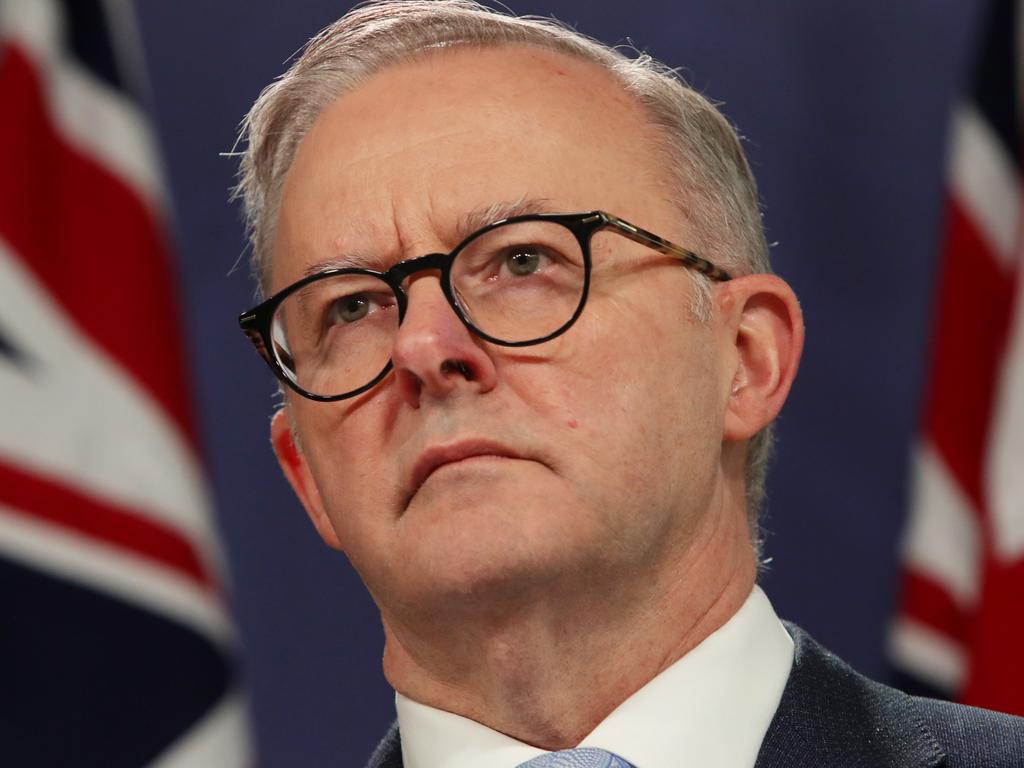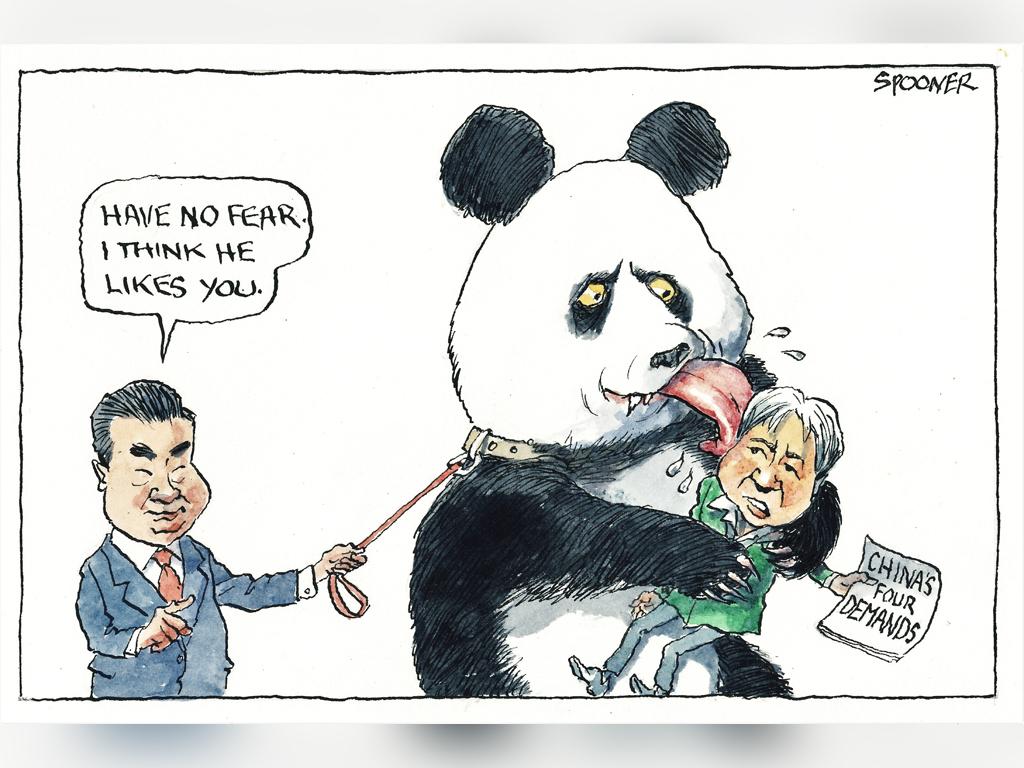Defence Minister Richard Marles promises military boost to avoid ‘catastrophic failure of deterrence’ in Indo-Pacific
In remarks Beijing is likely to take as a snub, Defence Minister promises more active role in repelling Chinese influence in Pacific.

Deputy Prime Minister Richard Marles has promised to boost the power of Australia’s military to avoid a “catastrophic failure of deterrence” in the Indo-Pacific, reassuring the US the new Labor government was totally committed to an ever closer partnership with Washington as the two allies seek to counter Chinese aggression in the Indo-Pacific.
In remarks Beijing is likely to perceive as a snub after it urged Australia last week to jettison close relations with the US, Mr Marles lauded the Australia-US alliance and promised to play a more active role in repelling Chinese influence in the Pacific, where China has sought to grow its economic and security alliances with small island nations.
“Today there is no more important partner to Australia than the United States. The US-Australian alliance has become a cornerstone of Australia’s foreign and security policy,” Mr Marles said in his first speech in Washington as defence Minister in the Albanese government, warning of a “tougher strategic environment”.
“We will make the investment necessary to increase the range and lethality of the Australian Defence Force so that it is able to hold potential adversary forces and infrastructure at risk further from Australia,” Mr Marles said in a major speech on Monday (Tuesday AEST) at the Centre for Strategic and International Studies in Washington.
It was an honour to attend the Arlington National Cemetery today to lay a wreath.
— Richard Marles (@RichardMarlesMP) July 11, 2022
I pay tribute to the American and Australian women and men who have laid down their lives to preserve the freedoms we hold so dear. pic.twitter.com/COvDfmzB4X
Mr Marles kicked off a four-day visit to the US capital by laying a wreath at Arlington Cemetery in Virginia earlier on Monday, and will meet his counterpart Defence Secretary Lloyd Austin and other senior US military figures on Wednesday, where he will propose integrating the Australian and US defence forces further.
“I will be proposing specific measures that both sides could adopt to streamline processes and overcome barriers to procurement, investment, information and data sharing systems and export requirements,” Mr Marles said, praising the AUKUS security pact with the US and UK that is set to provide Australia with a fleet of nuclear-powered submarines.
“AUKUS will not only make Australia safer, it will make Australia a more potent and capable partner,” he said, reiterating the government’s plan for a force posture review to be released “early next year”, which will assess how to improve the distribution of Australia’s defence forces.
“The Alliance with the United States affords Australia capability, technology, and intelligence advantages we could not acquire or develop on our own”.
The Biden administration has welcomed the new Labor government’s determination to maintain the previous government’s policy of closer defence, economic and intelligence ties with the US in the face of mounting Chinese aggression.
NATO named China as a “systemic challenge” to European and American security for the first time at its most recent summit in Madrid in June.
China blindsided the two ANZUS partners in May, signing a security pact with Solomon Islands, fuelling fears of a future Chinese base closer to Australian soil.
“We worry about use of force or coercion to advance territorial claims, as is occurring in the South China Sea, and its implications for the any number of places in the Indo-Pacific,” Mr Marles said, a reference to fears China will seek to reincorporate Taiwan into China by force, a longstanding goal of President Xi Jinping.
Hopes of a détente between Canberra and Beijing, which maintains a slew of embargoes on Australian exports as punishment for calling for an inquiry into Covid-19, floundered last week after China’s foreign Minister Wang Yi issued Australia with four demands, including rejecting “manipulation by a third party” – a clear reference to the US.
Prime Minister Anthony Albanese dismissed the demands over the weekend after a meeting between foreign Minister Penny Wong and Mr Yi in Bali, the first ministerial meeting between the two nations for three years.
“Look, Australia doesn’t respond to demands. We respond to our own national interest,’’ Mr Albanese said. “I’ll say this. We will co-operate with China where we can. I want to build good relations with all countries. But we will stand up for Australia’s interests when we must.”
Mr Marles also took a swipe at Russia’s invasion of Ukraine in his speech declaring it a “calculated application of violence, intended to roll back the post-Soviet order from one founded on sovereignty and self-determination to one governed by the rule of might and force”.
Mr Marles speech, which declared climate change a “national security issue”, came as the Pacific Islands Forum, of which Australia is the largest member, got underway in Suva, Fiji, where vice president Kamala Harris was expected to give a virtual address.
“The Pacific is where Australia must invest in effective regionalism by reinforcing the Pacific Islands Forum and other regional institutions that are so key to regional resilience and agency,” Mr Marles said.
Along with opposition leader Peter Dutton, the defence Minister will also attending the two-day Australian-American Leadership Dialogue, a two-day off-the-record conference of senior Australian and American, defence, intelligence and diplomatic officials in Washington.







To join the conversation, please log in. Don't have an account? Register
Join the conversation, you are commenting as Logout